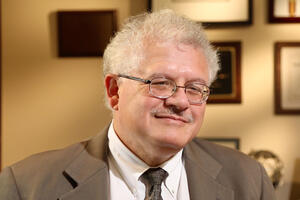
Statement from the Organization of American Historians
By George J Sánchez, OAH President, 2020-2021
“And Justice For All.” When my immigrant parents first sent me to school, they had little knowledge that the pledge I was asked to recite every morning ended with a phrase that was an unfulfilled promise in a nation they now called their own. The murders of George Floyd, Breonna Taylor, and Ahmaud Arbery by those entrusted to uphold the law and the justice system in the past few months, has made clear how far this country still has to go to fulfill that promise. All of us at the Organization of American Historians are deeply saddened and angered by these deaths, and recognize the structural and systemic racism and anti-blackness that continue to threaten specific members of our community and our entire social fabric. Each of these incidents have unfolded at a time when the nation is reeling from the COVID-19 pandemic, which itself has unleashed disparate health and economic impacts on communities of color, and on black people in particular, the product of persistent racial inequities.
As historians of the United States, we know that this is not the first time that our nation has faced these challenges. We also understand that it has historically been the force of collective organizing and mass protests—in which, in many cases, the most vulnerable have put their literal bodies on the line, much like what is happening in cities across the country today—that have pushed our society to make incremental changes to bring about a modicum of social justice. As Martin Luther King Jr. expressed in Selma, Alabama in March 1965, “Deep down in our nonviolent creed is the conviction – that there are some things so dear, some things so precious, some things so eternally true, that they’re worth dying for.” Over the past week, we have witnessed our neighbors, our colleagues, and our students stand up for a radically transformed society, and, as expressed by King, “letting the world know that we are determined to be free!” This is the time as individuals and as an organization to stand up and challenge the daily and institutional onslaughts of systemic racism that have too long made African Americans and other people of color unsafe and unequal in our society.
The OAH calls on all its members to deepen our commitments and redouble our efforts to preserve, interpret, and teach history that helps us all understand the ongoing centrality of racism in the United States, as well as the massive efforts to fight for justice—the present uprising included. We must bring our historical understanding to bear on contemporary issues and anti-racist movements by speaking truth to power, at our own institutions and beyond. At this time, we must rise to the occasion as a professional organization dedicated to engaging productively with members of our local communities and contribute to the national civic discourse on race and justice, through listening and acting. Most importantly, we must never forget the critical role we have with our students as empathetic teachers and mentors who can help them create a better world than the one we currently inhabit—a future in which we can all be proud.
Contact Us
Department of American Studies & Ethnicity
Located in Kaprielian Hall on the University Park campus, ASE faculty, graduate students, and staff are available to assist you with information and resources about our academic programs and research specialties.
Address
University of Southern California
3620 South Vermont Avenue
Kaprielian Hall 462
Los Angeles, California 90089-2534